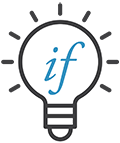Resources about Electronic Structure and Physics in Africa
To submit a resource about electronic structure, email the webmaster
Accessing journals
The American Physical Society through the ICTP provides free access to physicists from developing countries. https://www.aps.org/programs/international/map/africa.cfm
This access is part of the APS international programs https://www.aps.org/programs/international/map/index.cfm
Current publications
The African Physics Newsletter Published quarterly, an email newsletter about the latest developments in physics in Africa. Subscriptions to the newsletter are free and open to both Africans and non-Africans. To subscribe go to go.aps.org/africanphysics
| Date Published | Issue |
|---|---|
| 05/28/2020 | African Physics Newsletter: June 2020 |
| 04/09/2020 | African Physics Newsletter: April 2020 |
| 12/19/2019 | African Physics Newsletter: December 2019 |
| 09/12/2019 | African Physics Newsletter: September 2019 |
| 05/22/2019 | African Physics Newsletter: May 2019 |
| 02/14/2019 | African Physics Newsletter: February 2019 |
Publications about Motivation and about Related Activities
Material progress in Africa. Nithaya Chetty, Richard M. Martin and Sandro Scandolo. Nature Phys 6, 830–832 (2010). https://doi.org/10.1038/nphys1842 Description: A school on computational materials science that drew expert teachers and talented participants marks a new approach to the development of research in Africa.
Growing Materials Science in Africa–The Case of the African School for Electronic Structure Methods and Applications (ASESMA) Volume 3, Issue 37 (African Materials Research Society 2017 2018, pp. 2183-2201. Published online by Cambridge University Press: 15 February 2018 https://doi.org/10.1557/adv.2018.185
Authors: George Amolo Department of Physics and Space Sciences, Technical University of Kenya, PO Box 52428 00200 Nairobi Kenya; Nithaya Chetty Physics Department, University of Pretoria, Pretoria, 0001, South Africa and National Institute for Theoretical Physics, Johannesburg, 2000, South Africa;Ali Hassanali International Centre for Theoretical Physics, Trieste, Italy; Daniel Joubert School of Physics, University of Witwatersrand, Johannesburg, 2000, South Africa;Richard Martin Stanford University, Palo Alto, California, USA and University of Illinois at Urbana-Champaign, Urbana, Illinois, USA; Sandro Scandolo International Centre for Theoretical Physics, Trieste, Italy
Abstract: Materials science is arguably the most important discipline in the physical sciences that should be developed in Africa given its rich resources of minerals, energy and biological diversity. Developing materials science should therefore be an important goal for Africa with important opportunities for economic benefits and quality people development. There are already many successful materials science activities that are underway in Africa. This needs to gain wider international attention and should become contact points for international collaborations. The African School for Electronic Structure Methods and Applications (ASESMA)[1,2,3,4] is one such successful initiative that has been in existence for the past decade. ASESMA has shown that it is possible to build a network across sub-Saharan Africa with world-class research with a relatively low budget. The greatest asset is the commitment of the lecturers and mentors, the team-work of the local organisers and the idealism of the participants who rank amongst the brightest of young minds from Africa, many of whom come from impoverished backgrounds but still dare to reach for the stars.
Mentoring a Generation of Materials Scientists in Africa George Amolo and Richard M. Martin, Spring 2015. https://www.aps.org/units/fip/newsletters/201502/africa.cfm Description: An update on the African School on Electronic Structure Methods and Applications (ASESMA) and details about ASESMA 2015, University of the Witwatersrand, Johannesburg, South Africa.
Schools and Workshops
ASESMA: African School on Electronic Structure Methods and Applications
Description from the ASESMA website: The African School on Electronic Structure Methods and Applications (ASESMA) is a series of workshops held every two years in different Sub-Saharan countries, designed to foster a collaborative network for research and higher education within Africa. Participants are drawn from across the continent through a competitive process, and the lecturers and mentors are outstanding scientists from across the world including Africa. ASESMA is endorsed for the years 2010 to 2020 by the International Union of Pure and Applied Physics (IUPAP) as a joint mission of the Commissions on Physics Development, Computational Physics, Physics Education and the Structure and Dynamics of Condensed Matter, and it is supported by the International Centre for Theoretical Physics, the National Research Foundation in South Africa, the U.S. Liaison Committee for IUPAP, the American Physical Society and as well as a number of international organizations and industries.
